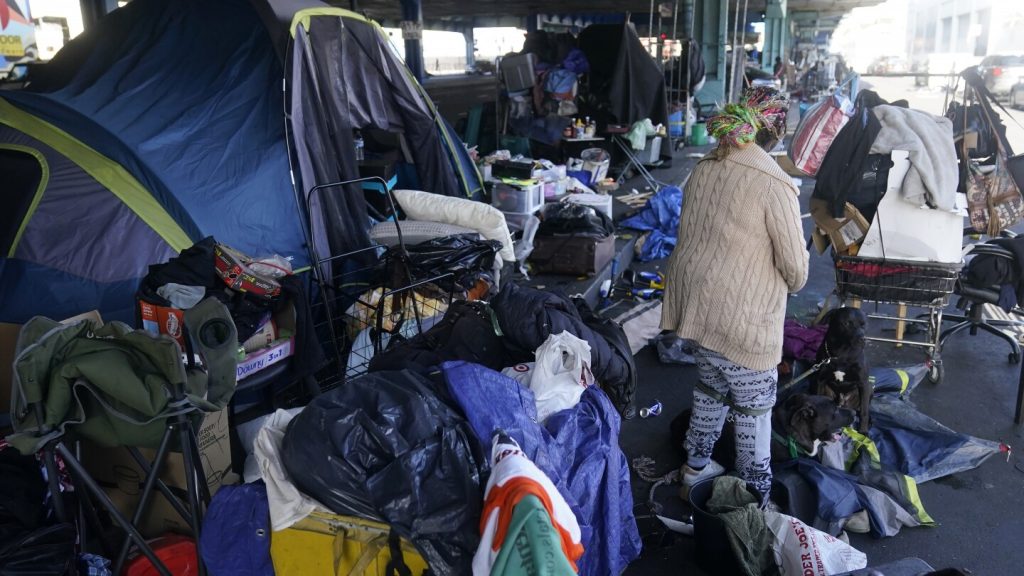The Supreme Court is set to hear a case on homelessness that could have far-reaching implications for cities across the country. The case originated in Grants Pass, Oregon, where the city banned camping and imposed fines on people sleeping outside. The 9th U.S. Circuit Court of Appeals blocked the camping ban, citing the unconstitutionality of punishing people for sleeping outside when there is inadequate shelter space. The city of Grants Pass appealed to the Supreme Court, arguing that the ruling limited their ability to address growing homelessness encampments.
Advocacy groups argue that overturning the ruling would lead to increased arrests and fines for homeless individuals, rather than providing them with shelter and housing. Homelessness in the United States has been on the rise, with soaring rents and a decline in pandemic assistance exacerbating the issue. The reported level of homelessness has reached its highest point in recent years, with a significant portion of individuals sleeping outside. People of color, LGBTQ+ individuals, and seniors are disproportionately affected by homelessness.
Washington and California are among the states with the largest homeless populations, with cities such as Los Angeles and San Francisco struggling to manage growing encampments. Officials in these cities express the need for the power to regulate homeless encampments to ensure public safety, but also acknowledge the importance of offering services and shelter to homeless individuals. San Francisco estimates it would cost $1.5 billion to provide enough shelter space for its homeless population and has been unable to enforce camping regulations due to a lack of shelter beds.
Several cities and California Governor Gavin Newsom have urged the Supreme Court to maintain legal protections for homeless individuals while addressing the issue of encampments. The Martin v. Boise ruling allows cities to regulate encampments but not enforce total bans in communities without enough shelter beds. The Justice Department supports the idea that people should not be punished for sleeping outside when they have no other options but argues that the 9th Circuit ruling should be overturned due to lack of clarity on what constitutes being “involuntarily homeless.”
Advocates for the homeless argue that public encampments are not suitable living conditions and that enforcement of camping bans can exacerbate homelessness by diverting resources to fines rather than housing. They emphasize the need for public officials to focus on addressing the shortage of affordable housing to provide lasting solutions for homelessness. The Supreme Court is expected to issue a ruling on the case by the end of June, potentially shaping the future of how cities approach homelessness across the country.


